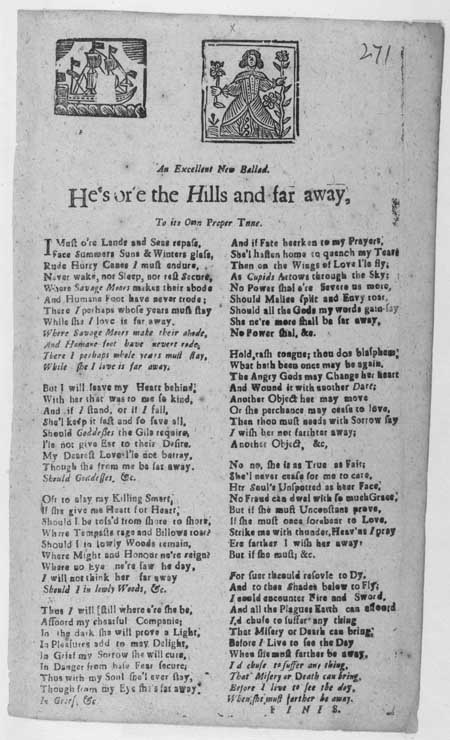Commentary
Verse 1: 'I Must or'e Lands and Seas repass, / Face Summers Suns and Winters glass, / Rude Hurry Canes I must endure, / Never wake, nor Sleep, nor rest Secure, / Where Savage Moors makes their abode / And Humane Foot have never trode; / There I perhaps whole years must stay / While she I love is far away.' The ballad was to be sung 'To its Own Proper Tune'. This ballad is narrated by a traveller who is pledging love to his sweetheart at home, regardless of what might befall him on his voyages. In the sixth of eight verses, the tone of the poem changes briefly, as the narrator expresses his fear that his sweetheart might fall out of love with him, before trying to dismiss such thoughts in verse seven. This recalls renaissance 'courtly love' poetry, where extravagant tributes to the object of desire were often alternated with professions of unworthiness from the narrator. Early ballads were dramatic or humorous narrative songs derived from folk culture that predated printing. Originally perpetuated by word of mouth, many ballads survive because they were recorded on broadsides. Musical notation was rarely printed, as tunes were usually established favourites. The term 'ballad' eventually applied more broadly to any kind of topical or popular verse.
View Transcription | Download PDF Facsimile
|
 |
Probable date of publication:
1701 shelfmark: Ry.III.a.10(018)
 View larger image
View larger image
|


